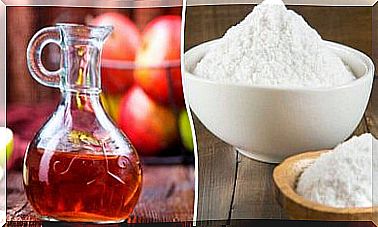The Best Choice Between Natural Or Low-fat Yogurt
Low-calorie or low-calorie yogurt often contains preservatives and sugars for flavor. Therefore, it is less healthy than natural whole yogurt.

Natural yogurt is one of the oldest foods in the world. It stands out for its nutritional value, its multiple uses in different culinary preparations and its cosmetic applications.
For all those who wish to reap the nutritional benefits of yogurt, it is natural to wonder which type of yogurt is most recommended. This question responds to the emergence of new low-calorie or low-fat products.
For this reason, we need to know the differences between natural or whole yogurt and one that is light or low in calories. But, what is the most suitable yogurt for our diet?
In the following article, we will answer this question and others related to this ancient food.
What is natural yogurt?

Yogurt is a dairy product that undergoes a fermentation process. During this process, hundreds of millions of bacteria are created. All of these bacteria have a very beneficial function for the human organism.
These bacteria are known as prebiotics, you’ve probably heard of them. They help in particular to improve the intestinal flora.
Natural yogurt is usually made in a traditional way and is not characterized by the addition of colors, preservatives or flavors. In addition, natural yogurt retains the complete fat of the milk.
However, natural or whole yogurt has not escaped the trend of low-fat products that have taken over almost the entire dairy market.
There are many myths related to natural yogurt that may confuse you. For this reason, we are going to discuss in this article three of the main myths that exist around natural yogurt. Discover them all!
1. Is natural yogurt fatter?

Strictly speaking, this may be true, since fat-free milk is used to make low-fat yogurts. So obviously the calorie intake is considerably lower for this type of yogurt.
But what’s the problem with whole natural products? The fat in natural yogurts is always assumed to be “bad” and this is where the error lies. If the yogurt was made with cow’s milk, then this fat is not harmful to your arteries.
In conclusion, this natural fat will not increase your cholesterol nor make you gain weight.
2. Is it good to add sweeteners to yogurt?
This myth is a consequence of the previous one and is due to something very simple: when the fat is removed, the yogurt loses its flavor and consistency. Therefore, low fat yogurts contain elements that give it a touch of flavor to compensate for this loss of fat.
Most people who consume them might think that sweeteners are not harmful to their health. However, several studies suggest the existence of a possible relationship between sweeteners and cancer.
Likewise, another survey carried out in 2006 linked sweeteners to diabetes and obesity. For this reason, you should think about your health and preferably choose natural or whole yogurt when shopping.
If you have a choice, it is better to go for natural products. When you have the chance, you can mix your natural yogurt with fresh seasonal fruits to give them more flavor.
3. Can we eat more yogurts if they are low?

To reap the full benefits of this nutritious, low-calorie, easy-to-digest food, all you need is one cup of yogurt per day. This way, you will also be able to get your daily calcium intake.
If you consume whole, natural yogurt, you will benefit from its original flavor and consistency.
The only recommendation is not to consume it in excess, as it could be counterproductive for your digestive system.
The best yogurt for your diet
Without a doubt, the best yogurt you can eat is the one that is natural and whole. So you can enjoy all of its benefits and vary the flavors by trying sweet or creamy types of yogurt.
You can also choose other good options from the following:
- Greek yogurt. This type of yogurt is made with whole milk and usually has a somewhat thicker consistency. You can perfectly use Greek yogurt to prepare sandwiches, but also to replace cream and cheese in your sauces and desserts.
- Kefir. It is a yogurt that has healing and regenerative properties for the body. It is high in protein and low in calories. Kefir is totally recommended for people with lactose intolerance.
You can use it to accompany your meals or as a snack. Kefir will always be a very healthy choice for your body.
Natural or low-fat yogurt?
Truth be told, it doesn’t make much sense to consume low fat or low fat yogurt. These types of yogurts generally replace fat with other ingredients such as sugars and preservatives.
Your best bet is to choose natural, whole-grain yogurts and limit yourself to a maximum of one cup per day.
What do you think ? Have you made your choice ? Which yogurt do you prefer and usually consume the most?
But what is Greek yogurt? It is characterized by its color between white and creamy white, its soft texture and its particular acid taste, in other words a mixture between cream and cottage cheese. This yogurt is very easy to digest because it contains less carbohydrates than the rest of the yogurts.
In addition, it is recommended for people with lactose intolerance. Discover all the other benefits of Greek yogurt in this article.









